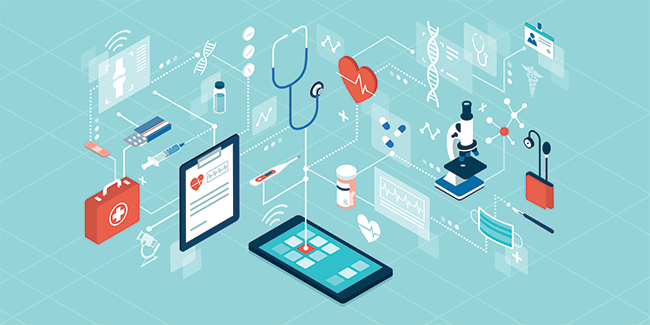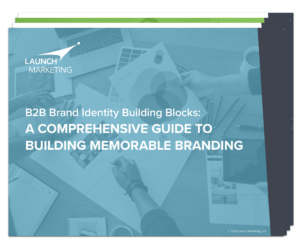
An effective marketing strategy and actionable marketing plan are foundational to promoting a business, reaching a target audience and generating revenue. For healthtech startups, those components are especially important. But many healthtech startups and entrepreneurs don’t necessarily know where to start to lay the groundwork for strong, impactful marketing. With over 20 years of experience in healthtech consulting, we’ve found these six marketing pillars are essential for healthtech startups.
1. Strategy
The first pillar is a marketing strategy. Thoughtful strategy guides all successful marketing initiatives. There are many components of an effective strategy, but it is key for healthtech startups to start by evaluating the product or service and its value and position in the market. Analyzing what problems your offering solves and for whom it serves is essential to define your business goals and develop your marketing strategy. A good marketing strategy is always driven by business goals.
2. Messaging
Messaging conveys your values and what is offered to potential buyers. Impactful messaging directed at the most relevant target audiences generates interest and ultimately leads. Your messaging should be revisited regularly and modified to reflect industry, market and product shifts. Outdated messaging can create a negative perception for potential buyers, so keeping messaging up to date is essential. Alignment with your marketing strategy is also critical. If your strategy and messaging are not aligned, there will be a disconnect with what is communicated in marketing content, campaigns and other sales and marketing initiatives. Ensure all team members are clear on messaging points. Consistency across internal contributors results in consistency across all marketing. To reevaluate or revamp messaging, collect feedback from customers, prospects and team members. Feedback from these sources can provide insight into current messaging and guidance on how to modify it moving forward. For healthtech startups, getting the messaging right is a must.
3. Branding
A brand tells a story and as a startup, it is important for audiences to get to know your brand. The look and feel of the brand should create an emotional connection. People identify most with brands that are authentic and trustworthy. A brand can also influence how prospects feel about you throughout the buyer’s journey. When prospects in the awareness stage come across your website, for example, and it resonates with them, they’ll remember it when they move to the consideration stage and start to evaluate options for purchase. Like messaging, a brand should be presented consistently across all marketing channels, including your website, social media and content. With healthtech being a fast-growing industry, it is important to differentiate your brand from competitors.
4. Lead Generation
Lead generation is essential to growing a business. Before generating leads, you have to carefully guide prospects through a buyer’s journey, which consists of several steps. The first three are focused on lead generation. In the first stage of awareness, someone realizes they are dealing with a problem that needs solving. Moving into the consideration stage, prospects start researching options to solve or alleviate their problems and pain points. The consideration stage is when a prospect becomes a lead. Interactions at this stage are very important. Providing prospects with relevant and useful content can keep your company top of mind while they consider their options.
5. Content Strategy
A content strategy is the planned distribution of content through marketing channels, which includes a variety of assets like eBooks, blogs, webinars and infographics. The buyer’s journey drives much of this content strategy, helping guide what content is delivered and when. In the awareness stage, leads want to identify their issues and consider how to solve them, so it would be most useful for them to read a blog or look at an infographic about possible solutions. As they move to the consideration stage, an eBook or white paper with more detailed information about your healthtech solution is helpful and will move them closer to purchase.
6. Marketing Automation & Technology
From maintaining sales and marketing alignment to improving the efficiency of operations, marketing automation can help streamline and strengthen marketing. Lead management is one area where automation can be helpful. Automation tools also analyze data from marketing campaigns and move a lead down the sales funnel in an automated fashion. Activities such as email marketing, content distribution and personalization can also be implemented with marketing automation tools. For most healthtech startups, this is something that helps streamline marketing and lead activities.
If you are looking for additional insight into marketing and how to effectively elevate and execute marketing activities for your healthtech, contact us today or request a free marketing consultation. As a B2B marketing firm with proven results in medtech marketing, we help organizations achieve results with effective marketing.
 Learn the Foundational Elements of Brand Identity and Messaging
Learn the Foundational Elements of Brand Identity and Messaging
There are no comments